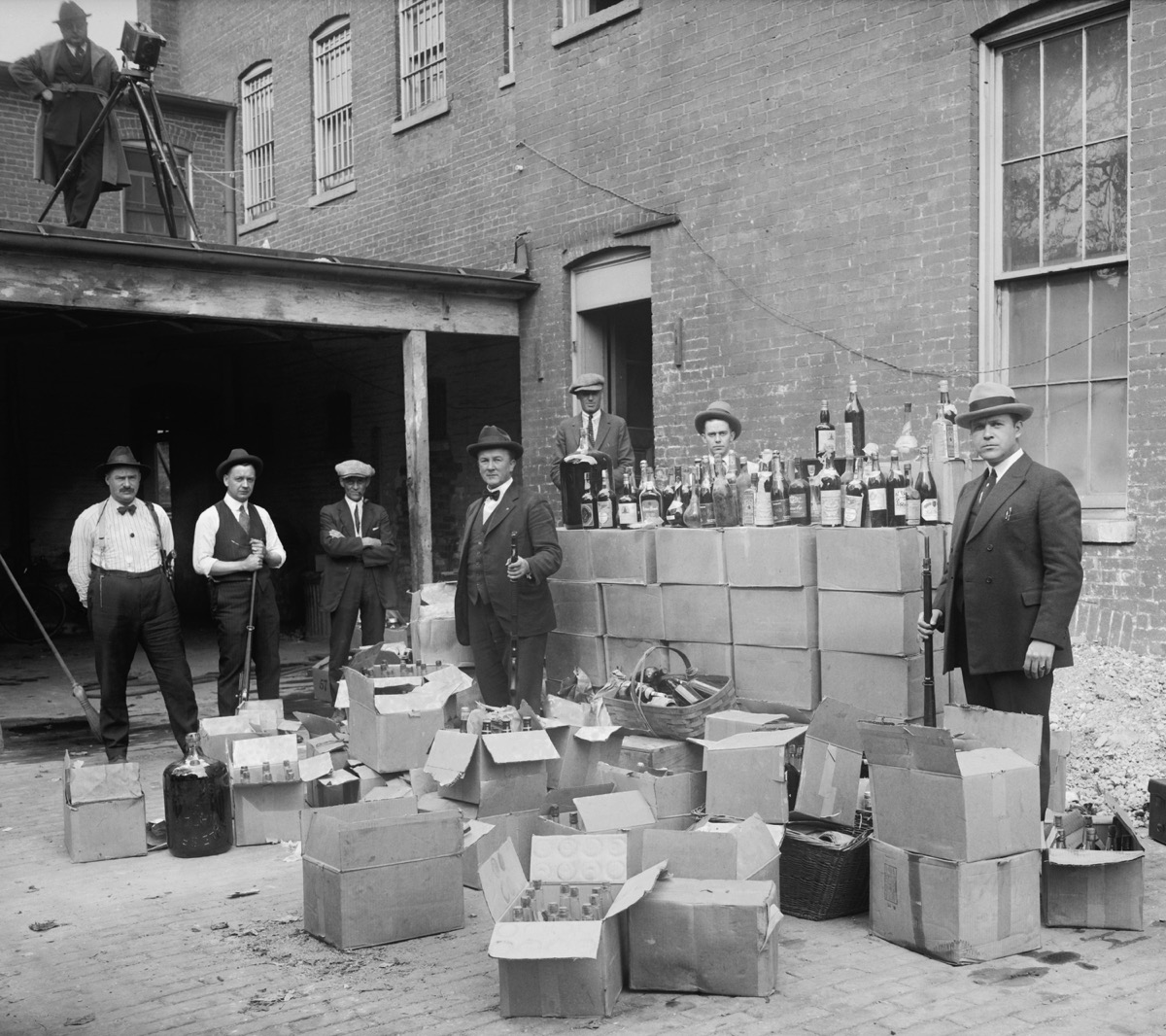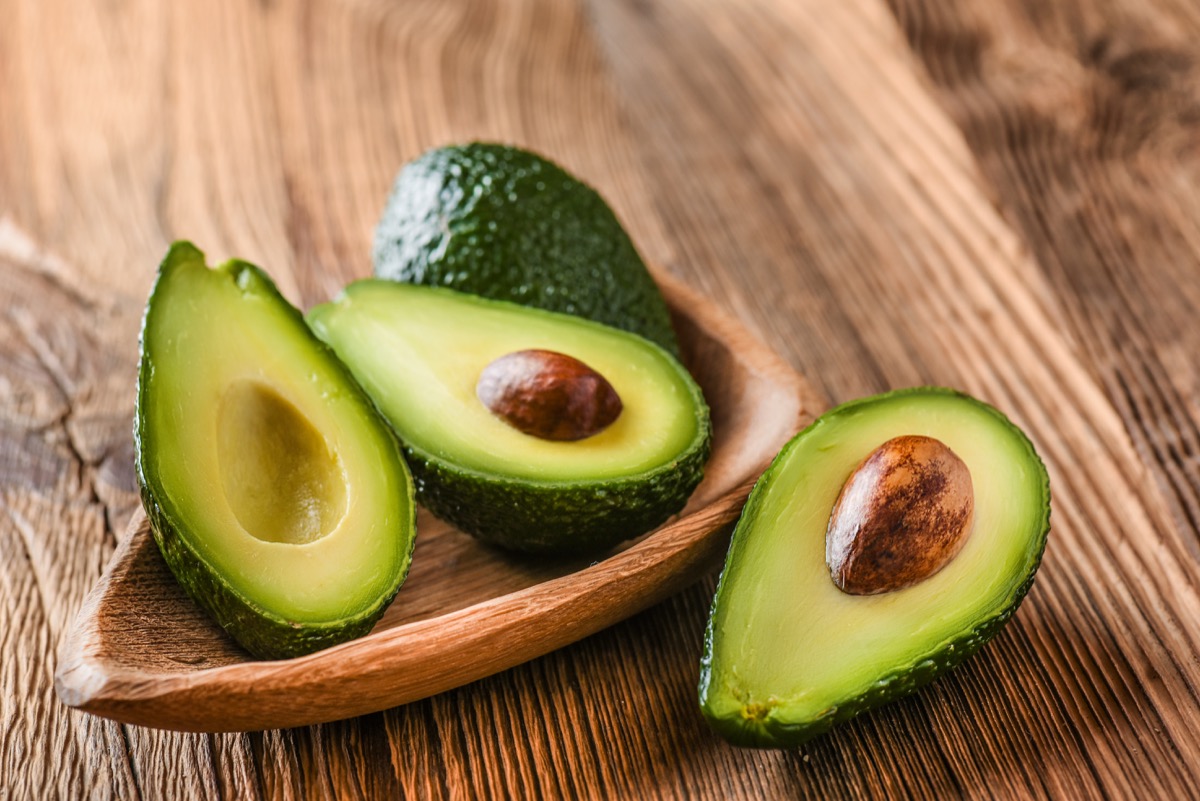The Surprising Origins of Common Words You Use All the Time
From avocado to walrus, these words have jaw-dropping backstories.

If you time-traveled back to 1776 and called George Washington a "nice guy," he'd probably punch you square in the jaw. And that's not to say Washington wasn't a nice guy—in fact, by all accounts, he was—but rather that "nice" just means something completely different today than it did just a couple centuries years ago. Yes, we all know that language is ever-changing, and that nothing is written in stone. People evolve; words evolve with them. But sometimes that evolution comes from so far out of left field that you'll find it hard to believe the word could ever mean what it does today. Dive deep into etymology and you'll find some seriously shocking origins of words you use all the time. Here are the 13 of the most jaw-dropping. And for more word history that will blow your mind, check out The Amazing Origins of Everyday Slang Terms You Use Constantly.
1
Nice

Calling someone "nice" is always nice, right? Well…
See, "nice" has roots in the Latin nescius, or "ignorant." By the time the word made its way to Old English, it garnered a more blunt definition: "stupid." It wasn't until the 19th century that "nice" meant, well, "nice." Needless to say, the word has some baggage. And for more language lessons, check out 50 Words You Hear Every Day But Don't Know What They Mean.
2
Bootlegging

Today, "bootlegging" is by no means an official term—but it's still very much illegal. U.S. Code just refers to is as "unauthorized fixation and trafficking in sound recordings." So, why do we colloquially refer to "unauthorized trafficking" as "bootlegging?"
Well, the answer is a boozy doozy: Back in Prohibition-era American, alcohol smugglers would literally hide bottles of liquor in their boots, flush against the leg. That's about as "unauthorized trafficking" as you can get. When alcohol became legal again, the term "bootlegging" was applied to other goods. And, today, we apply it things you cannot literally bootleg. (Can you smuggle a digital file in your shoes? Yeah—thought so.)
3
Avocado

"Avocado" is from the Spanish word aguacate. Sure, there's nothing too awkward about that. But aguacate comes from the Aztec ahuacatl, which had dual meanings. One: "avocado." Two: "testicle." And for the terms you should ditch from your lexicon as you get older, These Are All of the Slang Terms You're Too Old to Use After 40.
4
Clue

Theseus, the figure of ancient Greek mythology, might have been great at doing heroic deeds, but he wasn't so good with directions. So when he went to slay the Minotaur, in the labyrinth below the Palace of Minos at Knossos, he brought with him a ball of yarn, courtesy of Minos's daughter, Ariadne. (If you're wondering, yes, Theseus and Ariadne had a fling. And yes, like all Greek legends, she met an unfortunate end pretty much the moment the hero had no use for her.) Theseus simply unrolled the yarn as he went, and it helped guide him back to the maze's entrance—like a set of hints, or clues.
The Greek word for ball of thread at the time? Clew.
5
Mortgage

Mortgage is derivative of two French words: mort, or "death," and gage, or "pledge." So, literally, "death pledge." It's a good thing to consider before signing a decades-spanning, money-bleeding contract. And for the trendiest terms from your childhood, This Is the Most Popular Slang Word the Year You Were Born.
6
Sinister

In Latin, sinister means, simply, "left." But, in the 1500s, people who were left-handed were seen as demons—so "sinister" quickly started to mean "evil." And for language facts, the latest news, and more delivered to your inbox, sign up for our daily news letter.
7
Walrus

A walrus looks nothing like a horse nor a whale. And yet, that's where this majestic beast's name is believed to have derived—an amalgamation of two Old Dutch words for "horse" and "whale." That said, no one knows for absolute certain where the word comes from. Even J.R.R. Tolkein, that level-nine black belt of language, was flummoxed by the word's etymology.
8
Whiskey

According to Merriam-Webster, "Whiskey" is an abbreviated verison of whiskeybae, which itself is a varient of the Scottish usquebaugh. But that's not all: usquebaugh purportedly has etymological roots in aqua vitae, a popular Latin phrase you might recognize as meaning "the water of life." So, Macallan 18-year is the essence of life? Boo-yah.
9
Chafe/Chauffeur

Chafing is the worst. There are entire industries dedicated to minimizing its effects. (Thanks, La Mer!) Everyone hates chafing. So it's a bit awkward, then, that "chafe" and "chauffeur"—nice, polite people, generally speaking—both come from the French chaufer. And for the words you use that will elicit a blank stare from youngsters, Old Slang Terms Kids Born After 2000 Will Never Understand.
10
Dunce

In the Middle Ages, John Duns Scotus was considered one of the great thinkers of the time. His work on metaphysics and the "univocity of being" are foundational for philosophy today (whether or not you agree with them).
But, by the time the 16th century rolled around, however, his reputation quickly tanked. According to Merriam-Webster, his followers straight-up refused to follow the growing tide of humanist thinking at the time, and were quickly deemed "dunces"—or idiots. By calling someone a dunce, you're not calling them unintelligent.
11
Sandwich

As the story goes, John Montagu, the 4th earl of Sandwich—a region in Kent, England—invented the sandwich. But the circumstances of said invention are up for debate. In one telling, Montagu loved to gamble and eat salted beef at the same time, but didn't want to get his cards covered in grease. In the other telling, he just loved working so much, and didn't want to get his papers covered in grease.
In any event, that's why a sandwich today is called a sandwich: an 18th-century bureaucrat didn't want to get his hands dirty, and now we have a permanently-minted term.
12
Muscle

Translate "muscle" in Latin and you get "little mouse." Tell that to the dudes hogging the squat rack in your gym. (When the Latin word was first coined, people thought that flexing muscles kind of looked like field mice frolicking underneath taut skin.)
13
Quiz

In Gleanings and Reminiscences, Frank Thrope Potter tells the origin story of "quiz." As legend has it, one Dublin-based theater owner struck a wager: That he could mint a word in the lexicon within 48 hours. So, he quickly distributed a bunch of pieces of paper that read, simply, "quiz." People couldn't figure it out; they thought it was a sort of test—a quiz, if you will.
However, it should be noted, there's some dispute to the tale. Potter's story takes place in 1791. But in 1790, a popular toy named Quiz hit the market. Awkward…





















